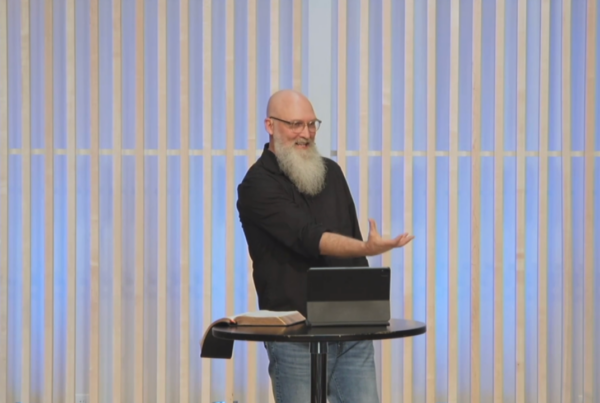If you assess church planters long enough, you will inevitably have to say ‘no’ to somebody. When that happens, here are four things to keep in mind:
1. Know Why You Are Saying ‘No’…
Do not say ‘no’ because you don’t like them. Inexperienced men with entrepreneurial tendencies often challenge the status quo with little grace and tact.
Do not say ‘no’ because they do not fit into your box of how a church should be planted.
Do not say ‘no’ because they do not fit into your box of how a church should be planted. Differences in ministry philosophy and secondary values are not a good reason to tell someone that they should not plant a church.
When you must say ‘no’, make sure you are doing so because you are convinced that God is not assigning them to plant this church in this place at this time.
2. Know What You are Saying ‘No’ To…
You are not telling him that he is not a church planter or that God has not called him to plant a church. You are not speaking into his identity or his calling; you are merely turning him down
for an assignment he is hoping will be his.
Brad Limerick makes this distinction in his book, H3 Leadership. Your identity is who you are and it does not change. Your calling is what you were designed to do best; as you mature and gain experience and wisdom, you may find that calling changes somewhat over time but it is not tied into a particular vocation or job.
Almost all of us will have multiple assignments as we live out our calling in specific roles in the workplace and at home. When a man asks to be assessed, he is asking whether or not God has given him this particular assignment to plant a church. When you say ‘no’ during an assessment, you are focused solely on this area of assignment.
3. Know When To Say ‘No’
Let’s get into the nuts and bolts.
There are times in which in is so obvious that someone is not ready to plant. Honesty and integrity compels you to say ‘no’ during the Assessment Conference. In most instances, however, it takes time to come to that conclusion.
I encourage assessment teams to let the entire assessment process play out before coming to a conclusion. Some candidates will not make a good impression; others will struggle to articulate themselves well in writing. So, don’t jump to conclusions; withhold judgment until the end.
Once the assessment is over, take time as a team to collaborate and prayerfully come to a clear decision. One question that has never steered me wrong as I’ve assessed potential churches is this: ‘Would I send him out from my church to plant a church?’ When you and your team comes to the same conclusion, you know what you need to do and say.
4. Know How To Say ‘No’
When you have to tell someone that they are not ready to pant a church, make sure that you break the news:
Quickly
Tell them as soon as possible.
Clearly
Do not leave any question about why and how the decision was reached.
Personally
I have always preferred to tell someone ‘no’ over the phone or via video call rather than relying solely on a written report; also offering coaching to the person I’m assessing to help them find the right assignment.
Finally, I want to press the importance of extending grace towards this man and his family. Nobody wants to be told that they do not have what it takes. No man can be rejected and not be tempted towards rage and despair. It is unreasonable to expect that the news will be taken lightly or gladly.
As an assessor, you must be willing to hurt someone’s pride and shatter their dreams when doing so is the right thing to do. When people get hurt, they will often lash out in ways that are unfair and unkind. Handling all of this with grace by counterintuitively providing safety and time to grieve is a remarkable gift to provide to someone.
Here is where we do well to remember the safe, patient grace of Jesus towards us as we rage against him through thought, word and deed. Only as we ruminate on his justice-demanding, sin-absorbing work on the cross do we find how to say ‘no’ with kindness while resisting the urge to defend ourselves when we bring necessary pain into someone else’s life.
Matt Adair is the Acts 29 US Southeast Regional Director for Georgia. He is also the lead pastor of Christ Community Church and works as a coach and consultant at ‘Griddiron‘ building customizable solutions for church leaders related to productivity, leadership development, and preaching.











